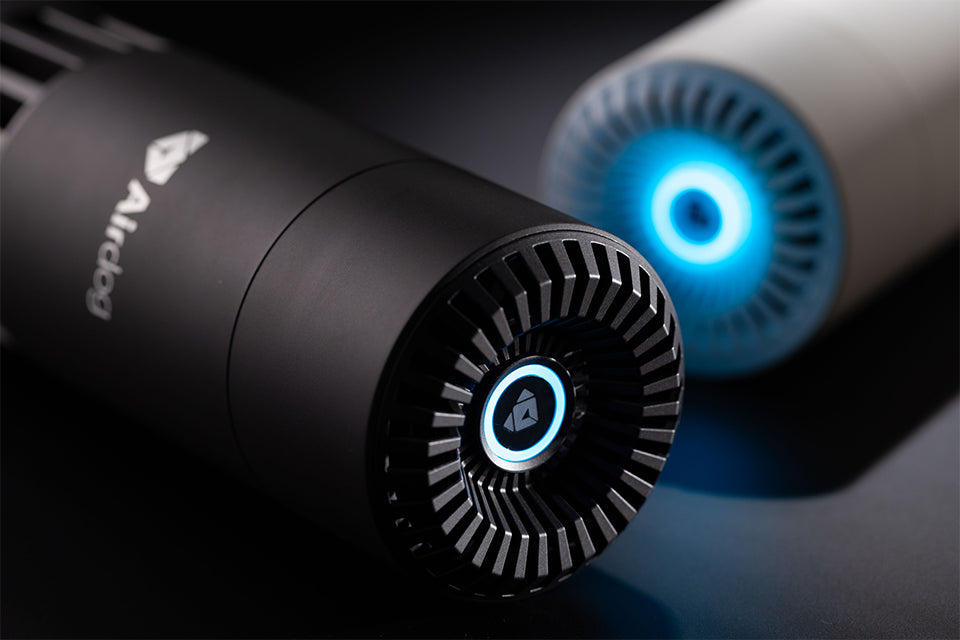We’ve all been there. One minute you’re loving that crisp, clean air from your air purifier, then bam... It’s time to change the HEPA filter again.
A bit of a pain, yeah?
Not only is it annoying, but those filter costs stack up fast. Plus, chucking out filters every few months isn’t great for the planet either.
But here’s the good news: there is a better way to keep your air fresh, without constantly swapping out filters.
Keen to know how?
Say Goodbye to HEPA Replacement Costs
People choose to buy HEPA air filters not only because they are widely available but also because they come recommended.
However, what most ‘experts’ and recommendations won’t tell you is that HEPA air purifiers have a long-term hidden cost associated with them that can burn a hole through your pocket within the year of purchase itself!
These air purifiers require frequent filter replacement, which can cost hundreds of dollars every 6 months, depending on the filter variety. Some high-end air purifiers that have specialised HEPA air filters won’t work with cheaper HEPA options. In such cases, you are forced to pay for these specialised filters just to keep the product running.
Shelling out close to 400 AUD every year becomes a financial drain on families, especially for those with young children or seniors suffering from health conditions that require them to breathe very clean air 24/7.
You can’t escape not changing the HEPA air purifier’s filter because its performance is impacted severely when the filter gets clogged. Once the filter gets stuffed with gunk, it becomes inefficient, failing to remove toxic pollutants from the air.
Most people are wary of choosing an alternative to a HEPA because they wrongly believe other air purifiers won’t do as good a job or could be potentially harmful.
If you’re looking for a way out of paying for frequent filter replacements or signing up for a filter subscription, you have an answer in the Airdog. Here’s why.
What’s The Untold Downside To A HEPA Filter?
A HEPA (High-Efficiency Particulate Air) filter effectively removes particulate matter in the air by forcing the air through a fine mesh filter that traps particles down to 0.3 micrometres in size. Pollen, dander, dust, and allergens are easily trapped and removed. Eventually, this filter gets clogged and needs to be removed.
A HEPA filter is non-biodegradable, so tossing one out is equivalent to tossing out 70 plastic bags into a landfill. With families replacing approximately 2 each year, the equivalent of 140 plastic bags enter the ecosystem, never to degrade, forever to stay.
HEPA filters are expensive. Replacement costs can go up to 200 AUD. And for some filter models, you cannot use cheaper 20 AUD varieties, so you have to stick to subscribing to the manufacturer’s recommended HEPA filter or risk poor performance.
An Airdog air purifier doesn’t make use of filter-based air purifying tech.
It uses an electrostatic field to attract particulate matter to collection plates. The collection plates can be washed off easily and as frequently as you like. No expensive filter subscription needed. Just some detergent and a clean sunny spot.
HEPA-based air purifiers cannot remove gaseous pollutants or odours unless an activated charcoal filter is also a part of the setup. Airdog filters come with an odour removal charcoal filter, so expect VOCs and pet smells to be removed faster.
Again, a HEPA-based air purifier isn’t very efficient at removing extremely small particulate matter. Airdog air purifiers remove particles that are as small as 0.0146 micrometres, and it is also known to deactivate the flu virus.
Wrapping Up: The Cost-Effective Alternative to HEPA Filters
An Airdog requires a one-time payment with no filter subscriptions and minimal amount of maintenance.
Just remove the collection plates, wash and dry them, then put them back. It’s environmentally friendly and a much more efficient setup.
It doesn’t lose efficiency (measured by Cumulative Clean Mass (CCM)) when the collection plates begin to get filled. It’s known to be up to 50x more efficient than HEPA.
So why wouldn’t you upgrade to this cost-effective alternative?


